There are, in fact, several ways to get free accommodation that a savvy traveler can take advantage of.
Of course, few things in life are ever truly free! Often you’ll have to work in some way to get a free place to stay, some platforms cost money to join, or there may be other forms of (cultural) exchange involved
So instead of being solely focused on getting something for free, it’s better to think of the following methods as creative ways to travel and to have cool experiences — which also happen to lighten your budget.
1. Housesitting
The first solution: housesitting.
The idea of housesitting is that you’ll stay in a person’s home while they’re away. Housesitting typically involves taking care of a local’s furry friends, though some just have you literally looking after the house or garden.
The fun part is that you not only get a comfortable place to stay, but you’ll often get to see parts of town you might not have thought to explore. Plus, there’s something to be said about staying in a home instead of a hotel.
And for animal lovers, it’s a no-brainer. Imagine going to sleep with a cat curled up beside you, or waking up to a parrot asking for its breakfast!
As far as where to start, TrustedHousesitters is the biggest platform by far. As a sitter, all you have to do is sign up, pay a small membership fee, create a profile, and you can apply for housesits through the website. The more sites you complete, the more reviews you can accumulate, which bolsters your chances of being selected for future applications.
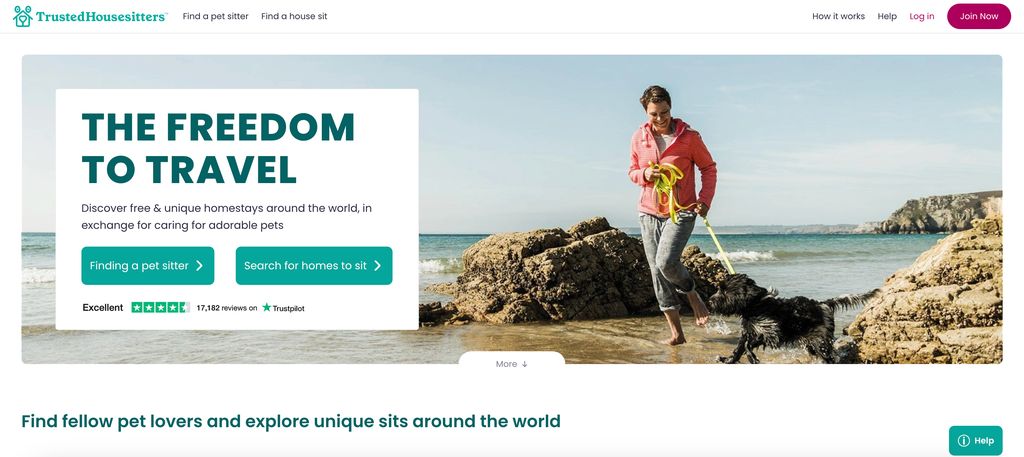
TrustedHousesitters has 24/7 veterinary advice as well as member support through the website, so you and the pets will be covered no matter what.
Housesitting is ideal for longer stays (often at least a few weeks) making it perfect for slow travel. It’s also a hugely underrated tool if you are thinking of working remotely online.
2. House swapping
House swapping is pretty much what it sounds like. You swap houses with another member in another location, whether simultaneously or at different times.
It’s somewhat similar to housesitting, but house swapping is a little more hands-free. As long as you are being respectful of a member’s home and take proper care of their place, you can come and go as you please without needing to worry about pets or other duties.
The largest and most reputable platform for swapping is HomeExchange. After paying the one-year membership fee of $175, creating a profile and home listing, and listing your home’s availability, you can browse homes that are available on similar dates and choose where you want to go.
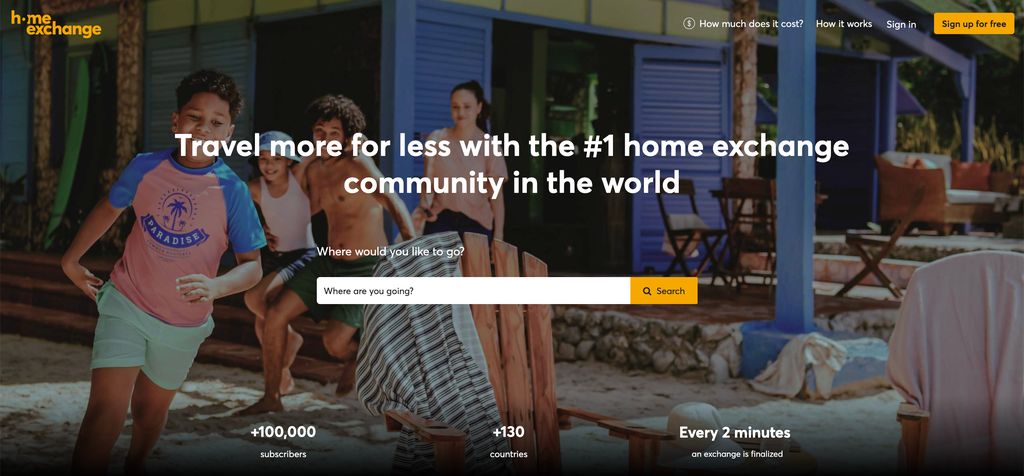
The key thing to understand is that you don’t have to swap simultaneously! Instead, you can accumulate Guest Points, which are used as currency to book homes. Different homes have different costs in Guest Points based on the area or country.
Having a stranger stay in your home may sound concerning, but members give and receive reviews just like other major hosting websites like Airbnb and TrustedHousesitters. This allows you to feel secure about the person living in your home. HomeExchange also has support resources if you need them, for things like misleading home listings, damage coverage, and cancellation protection.
Unlike Airbnb which has largely professionalized, what’s cool about House swapping is that you’ll truly be able to live in a local’s home for a while, giving you a different experience in the destination.
3. Couchsurfing
Many people will remember Couchsurfing.com from its heyday, back when low-cost travel accommodation was first emerging on the scene. The concept lets hosts accept guests to sleep on their couch or spare room for free but without any sort of swapping or points involved.
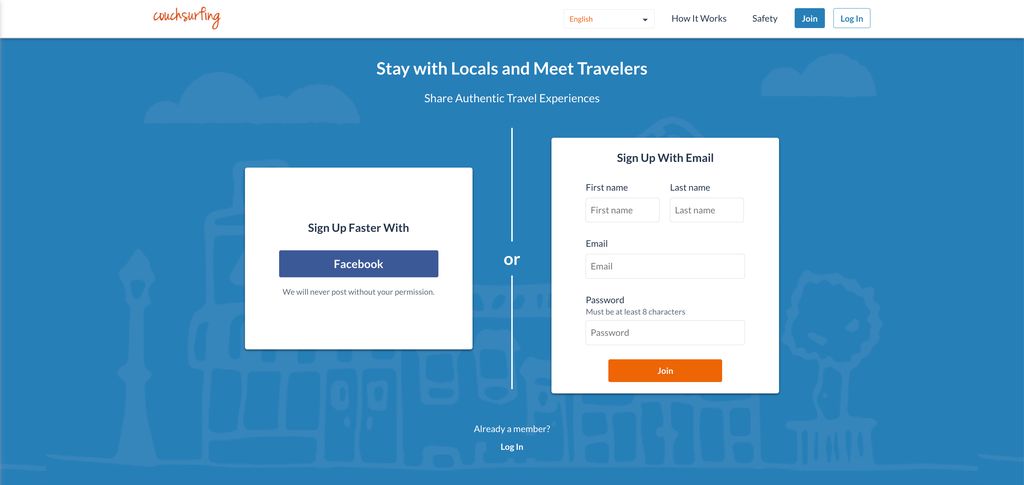
Here’s a fun fact: founder Casey Fenton, before establishing the company, hacked into a university database and emailed hundreds of students asking if he could crash on their couch during his stay in Iceland! It worked out, and the rest, as they say, is history.
However, veteran surfers will tell you that the Couchsurfing.com platform isn’t what it used to be. It changed from a nonprofit to a for-profit and ultimately got assumed by a new management team. Common complaints involve the original ‘spirit’ of Couchsurfing having diminished and the site systems not getting properly updated.
Some of the newer users also seem to treat the platform as a kind of Airbnb but for free, without embracing the notions of cultural exchange and host/guest interaction that typically come with true couchsurfing.
A few new contenders have entered the scene, however. The latest alternative is Couchers.org, which is a non-profit that harkens back to the original concept. It attempts to address the issues with Couchsurfing.com and actively bases its new model on resolving them — like prioritizing member safety, better usability, and putting the kibosh on outside investment.
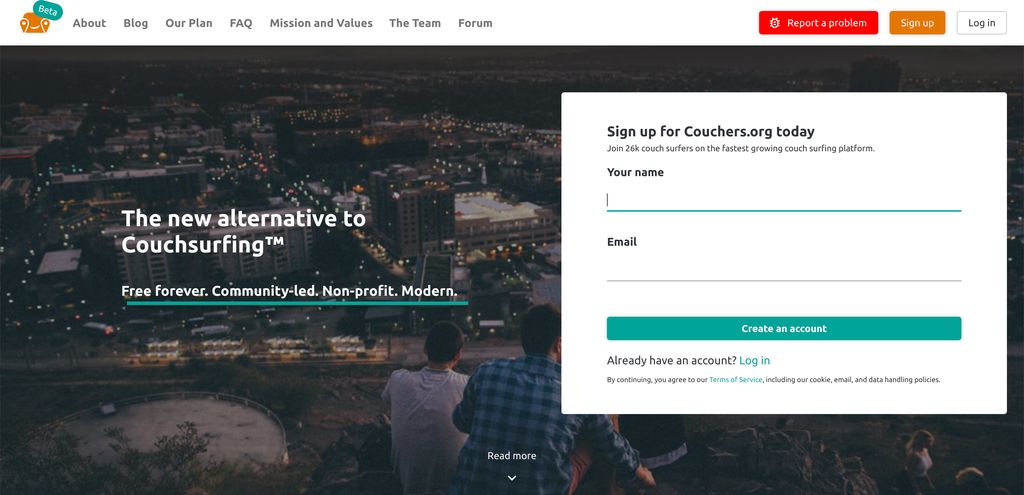
By the way, mentioning Couchers.org on Couchsurfing.com is grounds for a permanent ban, which suggests that maybe they’re doing something right. The Couchers community is not yet as active by far, but it’s growing and seems to have a lot of potential.
Through the concept of couchsurfing, hosts and travelers can connect so that those in need of a place to sleep can find a ‘couch’ in the area. It’s built in the spirit of community, cultural exchange, and ‘paying it forward’.
Even in a time of Insta-worthy hotels, exorbitantly expensive Airbnbs, and even hostels that have more than doubled in price in the past decade, platforms like Couchers, BeWelcome, and TrustRoots show that there will always be a place for community.
4. Volunteering
The practice of getting free accommodation by volunteering has been around as long as travel itself.
There are many different organizations that get you set up with volunteer positions in the countries you want to visit. The most popular ones are Workaway and WWOOF, both of which are membership-based.
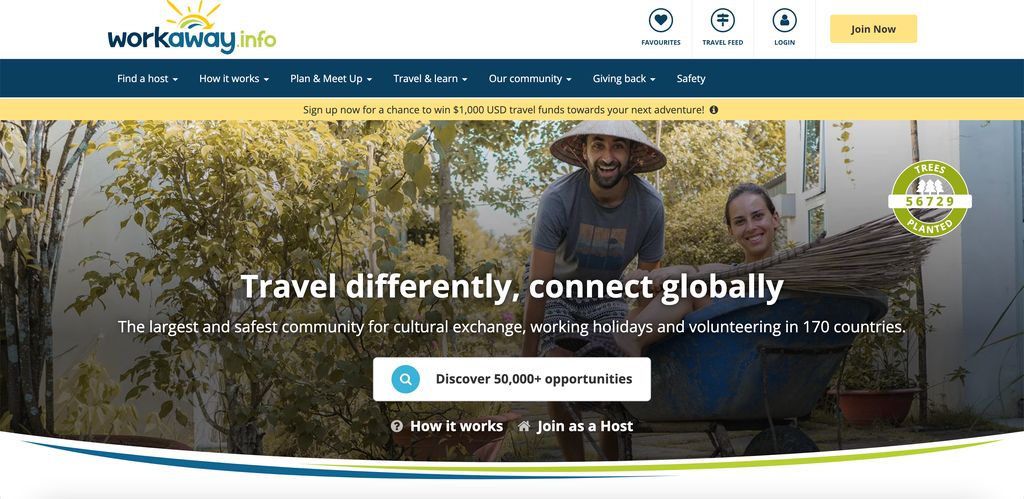
They are primarily based on organic farming, placing travelers on farming homesteads so they can work to earn their keep.
The social aspect can make this form of traveling especially fun. Farms will usually have other volunteers so you can make friends while you work and even travel with them during your downtime. It’s definitely a different way of getting to know new folks, not to mention connecting with the local community. Plus, getting your hands dirty on a farm is rewarding in itself, whether you’re cultivating strawberries, mucking a stall, or even assisting the beekeepers!

Workaway also offers the option to apply as a single traveler, a couple, and even as a family. You can also apply to farms in conjunction with other travelers, so you can work with friends you’ve made during your travels.
One thing to keep in mind: although woofing is low-to-no cost and fairly laid back, it’s important to secure a visa before you arrange your trip, as these organizations typically do not offer support in those areas. You may require a work visa instead of a tourist visa.
5. Working in a hostel
Hostels often employ some volunteers who help out at reception, with room cleaning, or bartending. In exchange for your labor, they will typically offer a free bunk bed and sometimes free food as well.
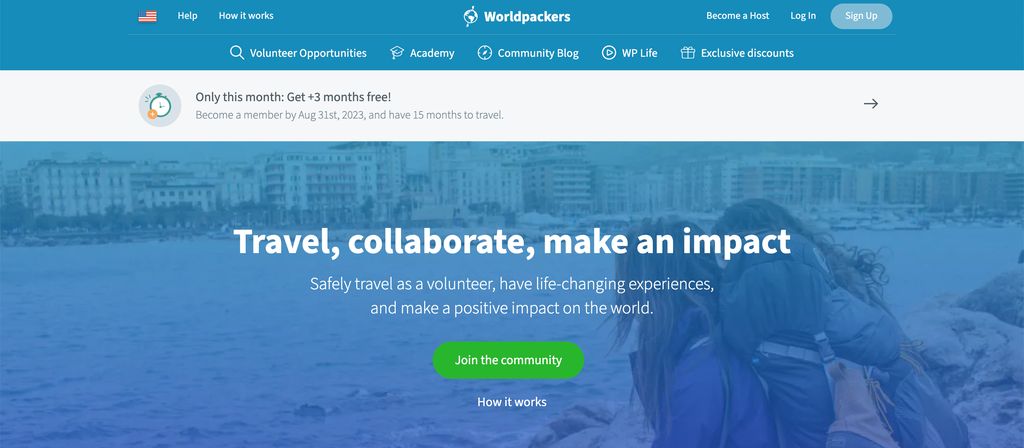
Organizations like Worldpackers or Broken Backpack allow travelers to apply for short-term positions in hostels, doing everything from housekeeping to front desk management to welcoming committees, in cities all over the world. If you’re already on the road, you might even notice Help Wanted signs in the very hostel you’re already staying in.
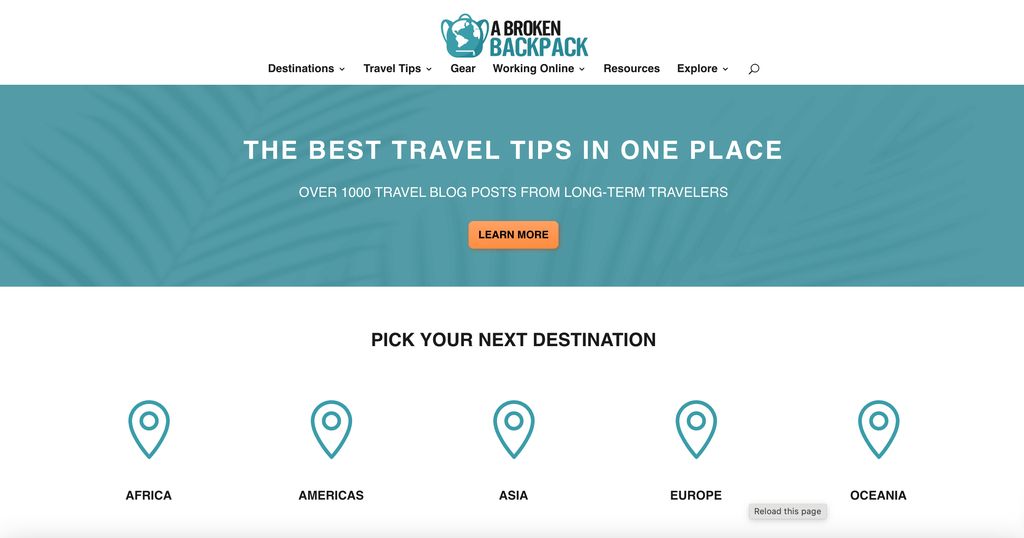
While volunteering in a hostel doesn’t leave you with that much time for travel activities, it’s a great way to “slow travel” while reducing your spending to a minimum.
Some links may be affiliate links, meaning I may earn commission from products or services I recommend. For more, see site policies.







0 comments
Leave a comment
Your email address will not be published. Comments are manually moderated.